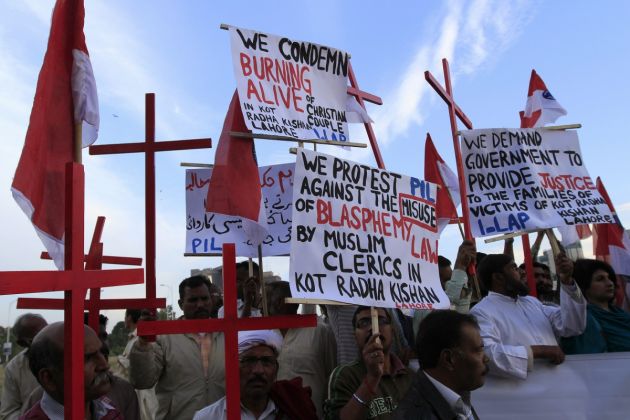Suspension of Pakistan women's death sentence 'shows need' for Christian-Muslim dialogue

The suspension of the death sentence of Asia Bibi, a Christian woman charged with blasphemy, by the Pakistan Supreme court has showed the value of Muslim-Christian dialogue, says a priest in the Islamic nation.
"The Supreme Court of Pakistan has made a great move as her death sentence was put aside," Father James Channan said in a July 23 interview with the international Catholic charity Aid to the Church in Need.
"I firmly believe that justice will be done, that she will be proven innocent and that she will be released," said the Roman Catholic Dominican priest.
He noted, "The blasphemy law was used (in Bibi's case) to settle a personal score - the accusation was an act of revenge."
The Pakistani woman has denied the accusation, saying her accusers were acting out of a personal vendetta.
Asia Bibi spent nearly five years on death following an accusation that she insulted the Islamic prophet Muhammad during an argument, Catholic News Agency reported.
Earlier in July the Supreme Court of Pakistan suspended Bibi's execution, and will soon hear her appeal.
However, CNA reported that many Pakistanis have spoken out against the court's decision and have said it would carry out the execution even if she is deemed innocent.
Fr. Channan commented that bibi's trial is one of many over charges of blasphemy in Pakistan.
The nation's blasphemy laws have often been misused for personal reasons or gain, and the accusations are often false, he warned.
The priest who believes in the rights of Christians in the overwhelmingly Muslim nation said that followers of his faith have to work for those ends.
He estimated that around 130 Christians are currently being tried under Pakistan's blasphemy law, and that 950 Muslims are being held under the law.
"The misuse of the law should be stopped, such as its use to settle personal scores or to further business purposes," he said.
Channan also called for Pakistan's government to revise its constitution, removing provisions that relegate Christians and other religious minorities to the status of second-class citizens.
